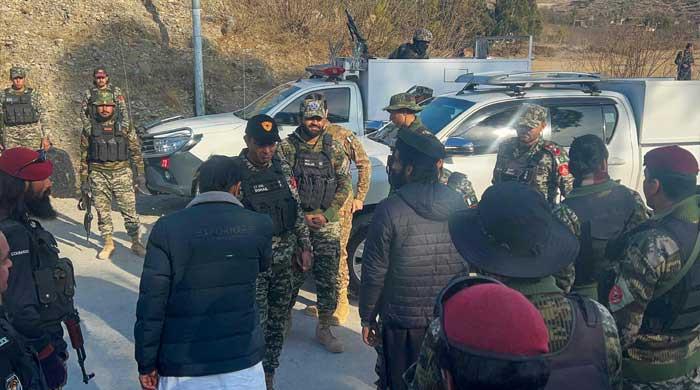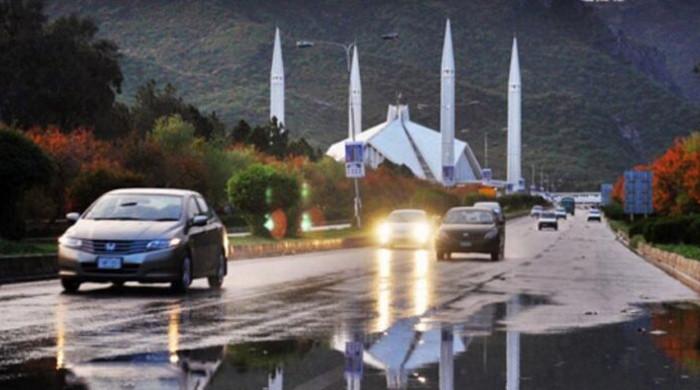Pakistan urges concrete steps to prevent weaponisation of outer space
"The threats to security in and from outer space have escalated sharply in recent years," says ambassador
May 07, 2024

- "Prevention of arms race in outer space to avert grave danger."
- Issue should be referred to CD for further consideration: envoy.
- Russia vetoed resolution seeking end to extraterrestrial arms race.
After Russia vetoed the Security Council's draft resolution to stop extraterrestrial arms race, Pakistan has called for steps to prevent the weaponisation of outer space, saying such a course would avert a grave danger to international peace and security.
"The threats to security in and from outer space have escalated sharply in recent years. This is evident from the placement of weapons in space, and its increasing characterisation as the next war-fighting frontier in the military policies and doctrines of major powers," Ambassador Munir Akram told the UN General Assembly on Monday.
The 193-member UNGA was debating Russia’s veto in the Security Council last month which blocked a draft resolution aimed at preventing a new extraterrestrial arms race.
Due to the negative Russian vote, the 15-member Council failed to adopt last month's text, which received 13 votes in favour, with China abstaining. The draft resolution was introduced by the United States and Japan and co-sponsored by over 60 nations.
In his remarks, Ambassador Akram said that the US-Japan draft resolution rightly recognised that the prevention of an arms race in outer space would avert a grave danger for international peace and security; underscored the importance of the Outer Space Treaty; and reiterated that the Geneva-based Conference on Disarmament as the sole multilateral disarmament negotiating forum.
Pakistan, he said, has always maintained a principled position that resolutions on global disarmament issues should be deliberated and concluded in an inclusive and transparent manner within the appropriate forums — the Conference on Disarmament (CD), the UN Disarmament Commission and the First Committee of the UNGA, which deals with disarmament and international security matters.
The Pakistani envoy regretted that there has been no progress on a Treaty to Prevent an Arms Race in Outer Space for over four decades.
"Initially, some dismissed the possibility of an arms race in outer space. Then, they argued that it was too late to prevent its militarisation and called for focusing on non-weaponisation measures. Now, they want to concentrate on behaviour rather than capabilities, ignoring the inherent risks of legitimising the weaponisation of outer space," the envoy added.
Pakistan, Ambassador Akram said, has been advocating a comprehensive approach with a dual focus on both capabilities and behaviour.
"We have consistently advocated urgent negotiations on a legally binding instrument on Paros (Preventing Arms Race in Outer Space). Concurrently, we have also actively contributed to non-legally binding measures such as Transparency and Confidence-Building Measures (TCBMs).
However, he added, the evident gaps in the international legal regime cannot be filled by TCBMs or other non-legally binding norms.
Regretting that a few states continue to block the start of such negotiations in the CD on a legally binding instrument that prohibits the placement of weapons in outer space and outlaws the threat or use of force against outer space objects, the Pakistani envoy said that they have failed to explain how such negotiations would undermine their security interests.
"They have also failed to justify why definitional and verification issues cannot be taken up during negotiations – an approach that they advocate for another item in the CD."
Akram therefore hoped that this issue of weaponisation of outer space, which has been raised in the Security Council, will be transmitted to the CD for further consideration within the context of negotiations on a treaty to prevent an arms race in outer space.











